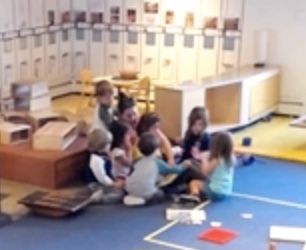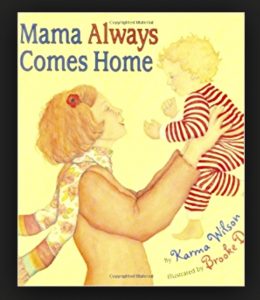An interesting play scheme has developed. Often throughout the morning, Kyla, Amelia, Caroline and others attend to their babies and then suddenly realize that they need to go out. Just like real mommies and daddies, sometimes they can’t bring their babies out with them. Each time this happens, they get their babies ready for the day and then bring their dolls over to Diane to babysit for a short time. When the babies are dropped off, Diane reassures the parents that the babies will be well cared for while they are gone. This drop-off scene is repeated many times throughout the morning as different moms and dads explore the idea of leaving their babies in the care of another, and then coming back when they are done.
Kyla: I have my baby. Do you want to hold her?
Oh. You have to go?
Yea.
Could you say goodbye so she knows you’re going?
Kyla: Yea. (She kisses and waves) Bye
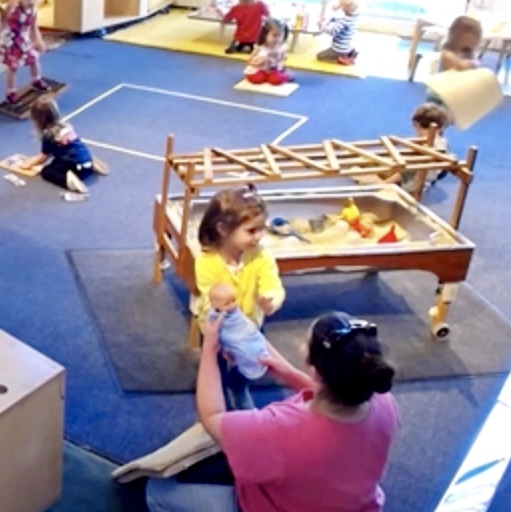
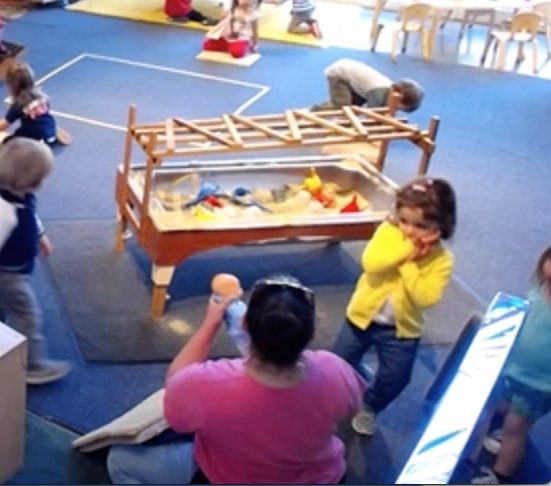
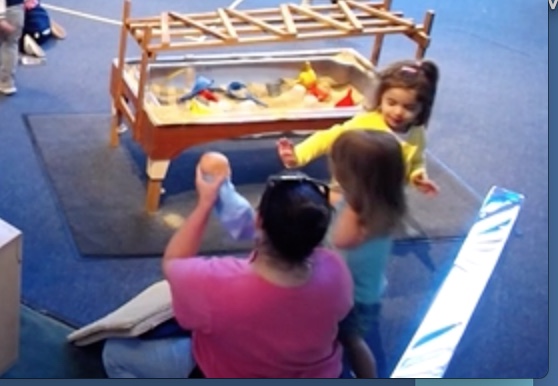
Asha watches this closely. She wants to join. Diane tells Asha, I have a book I’m gonna read to this baby.
Luca: Why you gonna read that baby a book? The baby likes puzzles. (He brings over a puzzle for the baby. Then another.)
Saige brings over some books. I have books. I have two books.
Luca: The baby wants to play.
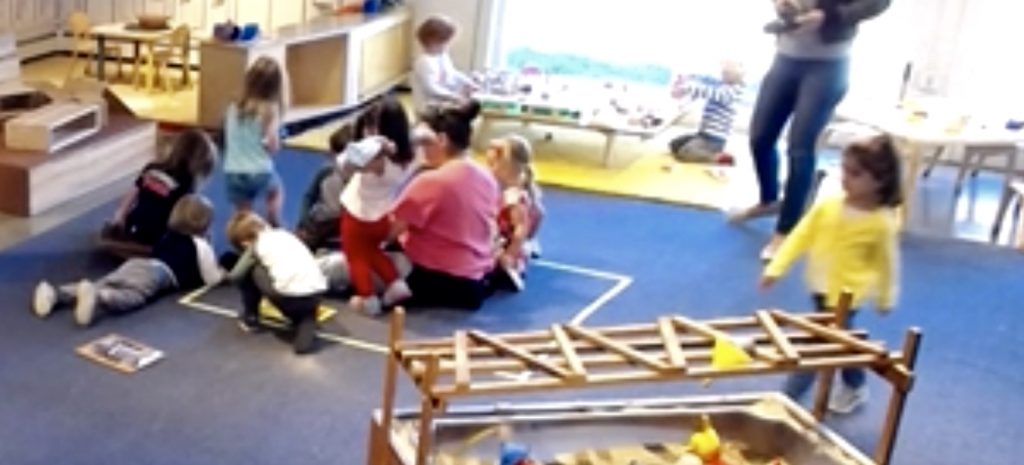
Amelia brings her baby over. Can you wrap my baby up? Can you wrap my small baby up?
Luca: The baby wants to do this one (a puzzle).
Cal also brings over a puzzle.
Kyla: I’m back! (Before Kyla’s baby is given back to her, she sees a puzzle nearby and begins working on it.
Are you ready to come back mama, or are you still busy?
Kyla: I’m still busy
Ok.
Luca: This baby is crying.
Amelia’s baby is crying? What should we do?
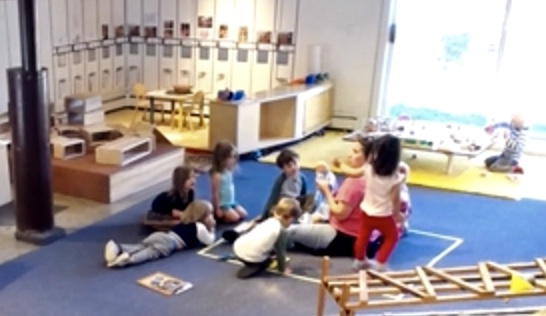
Amelia: I have to go
You have to go? Hmm. Ok.
Amelia gives her baby doll two kisses, two hugs, waves goodbye and goes off to play somewhere in Studio Blue.
It’s ok, baby. You’re a little sad. She’ll be back.
Caroline comes over with her baby: I…I…I’ve got a baby that’s scared. A ghost was going to get her. I have to go. (she runs off)
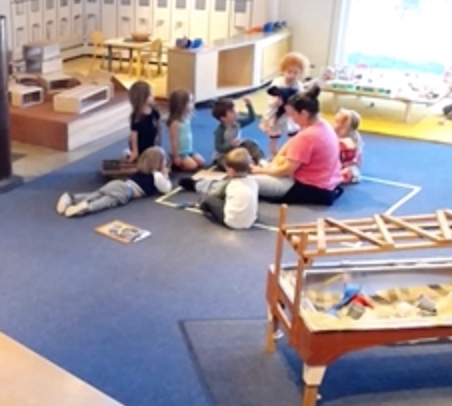
Luca: The ghosts hiding there. It was a ghost.
Kyla comes back. We tell her that her baby cried a little bit, and then she was happy.
Asha: I’m the ghost.
Diane asks Kyla, Are you mama or dada?
Kyla: I’m the mama.
Ruthie: Ruthie’s not. Ruthie’s a kid.
Kyla: I have to go now and then I’ll come back. I have to go again.
Kyla invites Asha, Let’s go to our work. We need to go to our work.
Amelia: I’m back!
You’re back. Your baby cried for a little bit. She was a little sad and then she was happy. We had fun, baby!
Caroline: I came back.
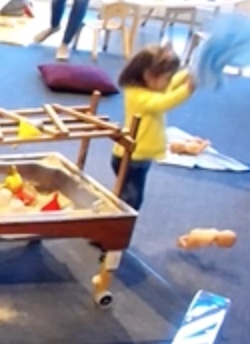
Kyla then puts her baby under her shirt, pretending to be pregnant. Suddenly, she pulls the baby out with a big dramatic swoosh of a blanket.
Kyla: Daddy learned me how to put this in my tummy.
Luca: Uh, Diane, I want you to do rock a bye baby to my baby.
Ruthie gets a baby doll and joins in.
